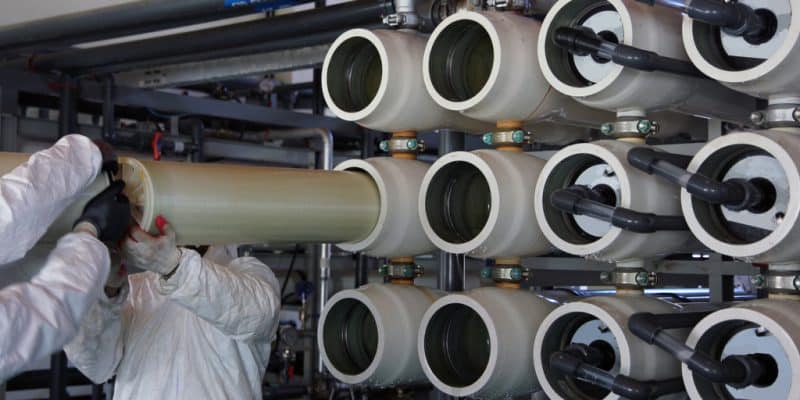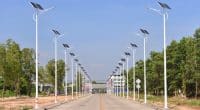The Abengoa-Enginnering Procurement & Project Management (EPPM) consortium plans to commission the Sidi Abdelhamid seawater desalination plant in the port city of Sousse in the summer of 2023. The plant will be able to supply 2.3 million people with drinking water.
In Tunisia, the construction of the seawater desalination plant in Sidi Abdelhamid will be completed in the summer of 2023. This is the hope of project director Moncef Amara, who also indicated that the plant will be commissioned in two phases. In its first phase, the future plant will have a daily capacity of 50,000 m3 per day. The production of drinking water will increase to 100,000 m3 per day with the second phase. This will be the culmination of a project launched in 2018.
The Abengoa-Enginnering Procurement & Project Management (EPPM) consortium is implementing the seawater desalination project. The Spanish company Abengoa is supplying the technology, which is being installed in collaboration with the Tunisian EPPM. The consortium is relying on financing of 128 million Tunisian dinars (over 40.35 million euros). At the project site in the eastern port city of Sousse, work is 60% complete.
Drinking water supply for 2.3 million people
The objective is to cover the drinking water needs of approximately 2.3 million people in the city of Sousse. The desalination project is part of a programme to develop drinking water resources for Cap Bon, the Tunisian Sahel and Sfax. These regions, which account for 55% of the population of the North African country, are confronted with drought which causes water stress.
Read also- AFRICA: desalination now at the heart of water supply strategies
The programme supported by the French Development Agency (AFD) will eventually improve water supply by 2030, notably through the “transfer of an additional 100 million m3 of water per year from the north to Cap-Bon, the Tunisian Sahel and Sfax”, says the AFD. This transfer will also reduce the overexploitation of the Kairouanais and Sidi Bouzid groundwater.
Inès Magoum







